- MN ABE Connect
- Archive
- Collaboration is Key for Contextualized Curriculum
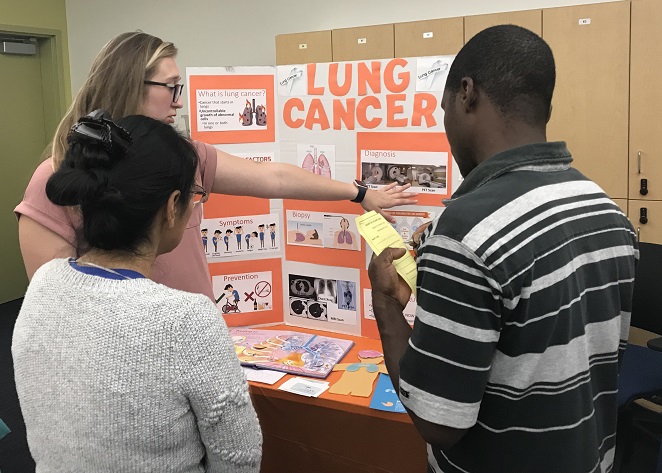 June 21, 2019
June 21, 2019
Collaboration is Key for Contextualized Curriculum
Heather Turngren, TeacherContextualized curriculum is often a large part of career pathways coursework and can also include GED-focused ABE classes. Collaboration can be key in having contextualized curriculum work seamlessly in the classroom and is the ultimate benefit for students and teachers.
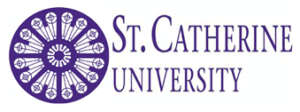 For the past 4 years the reading classes at Minneapolis Adult Education’s South Campus have collaborated with the St. Catherine University’s Community Healthcare Worker program. This is a nine-month community health worker (CHW) certificate which prepares students to work with communities at the grassroots level, reduce health disparities, and help underserved communities. CHWs usually have deep roots or shared life experiences in the communities they serve. Often CHWs share similar values, ethnic background, and socio-economic status and often speak the same language as the people they serve. The CHW serves as a liaison between the community and the healthcare, government, and social service systems.
For the past 4 years the reading classes at Minneapolis Adult Education’s South Campus have collaborated with the St. Catherine University’s Community Healthcare Worker program. This is a nine-month community health worker (CHW) certificate which prepares students to work with communities at the grassroots level, reduce health disparities, and help underserved communities. CHWs usually have deep roots or shared life experiences in the communities they serve. Often CHWs share similar values, ethnic background, and socio-economic status and often speak the same language as the people they serve. The CHW serves as a liaison between the community and the healthcare, government, and social service systems.
The collaboration began with the ATLAS-sponsored LaGuardia CCI Cohort in 2015. At that time, I was part of the cohort that centered on contextualizing curriculum with career-focused basic skills instruction. My task was to contextualize curriculum for my pre-GED reading class. At the same time, I also had a request for a student service-learning experience from the University’s Community Healthcare Worker program. This allowed me to shift the focus of contextualizing my curriculum to healthcare. Since it was a GED class, I also included content from the GED Science Exam around human body systems and disease prevention.
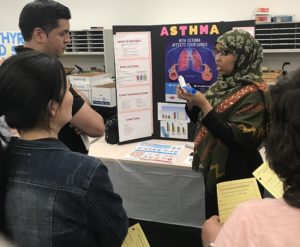 The contextualized work developed into a true student-centered activity. ABE students worked in groups to determine healthcare topics they wanted to learn more about. Some of the topics included breast cancer, asthma, diabetes, heart disease, and STDs. Once the topics were decided, the CHW students worked under the guide of their professors to produce interactive materials and posters that engaged students in learning about diseases and illnesses, and their prevention.
The contextualized work developed into a true student-centered activity. ABE students worked in groups to determine healthcare topics they wanted to learn more about. Some of the topics included breast cancer, asthma, diabetes, heart disease, and STDs. Once the topics were decided, the CHW students worked under the guide of their professors to produce interactive materials and posters that engaged students in learning about diseases and illnesses, and their prevention.
On the day of the Healthcare Fair, the CHW students arrived, set up their stations, and were ready to engage the ABE students. The ABE students had questions stems from which to gather information and learn from the various topics presented. In some classes, the ABE students wrote on the topics they chose and what they learned on disease prevention. In order to not overwhelm the CHW students, teachers staggered groups of ABE students to the learning stations.
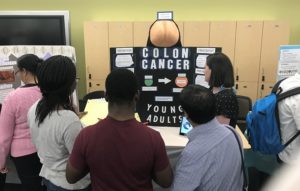 The CHW students learned about best practices in delivering healthcare information to various communities. This year, we included intermediate-level ELL classes. This allowed for the CHW students to really expand their outreach skills.
The CHW students learned about best practices in delivering healthcare information to various communities. This year, we included intermediate-level ELL classes. This allowed for the CHW students to really expand their outreach skills.
CHW students stated it was an incredibly rewarding experience in their education. ABE students commented that is was the “best class” because they were learning about topics they chose. ABE students also asked questions about the CHW certificate program and were interested in this potential career opportunity.
For this ABE teacher, it was a win-win-win collaboration with contextualized curriculum, student-centered learning, and working with professors and students. I’m looking forward to another year of collaboration!
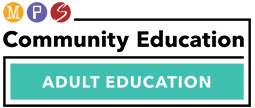
Newsletter Signup
Get MN ABE Connect—the official source for ABE events, activities, and resources!
Sign UpArticle Categories
- ABE Foundations/Staff Onboarding
- ACES/Transitions
- Adult Career Pathways
- Assessment
- CCR Standards
- Citizenship
- COVID-19
- Cultural Competency
- Digital Literacy/Northstar
- Disabilities
- Distance Learning/Education
- ELA
- Equity/Inclusion
- ESL
- HSE/Adult Diploma
- Listening
- Math/Numeracy
- Mental Health
- Minnesota ABE
- One-Room Schoolhouse/Multilevel
- Professional Development
- Program Management
- Reading
- Remote Instruction
- Science
- Social Studies
- Speaking/Conversation
- Support Services
- Teaching Strategies
- Technology
- Uncategorized
- Volunteers/Tutors
- Writing